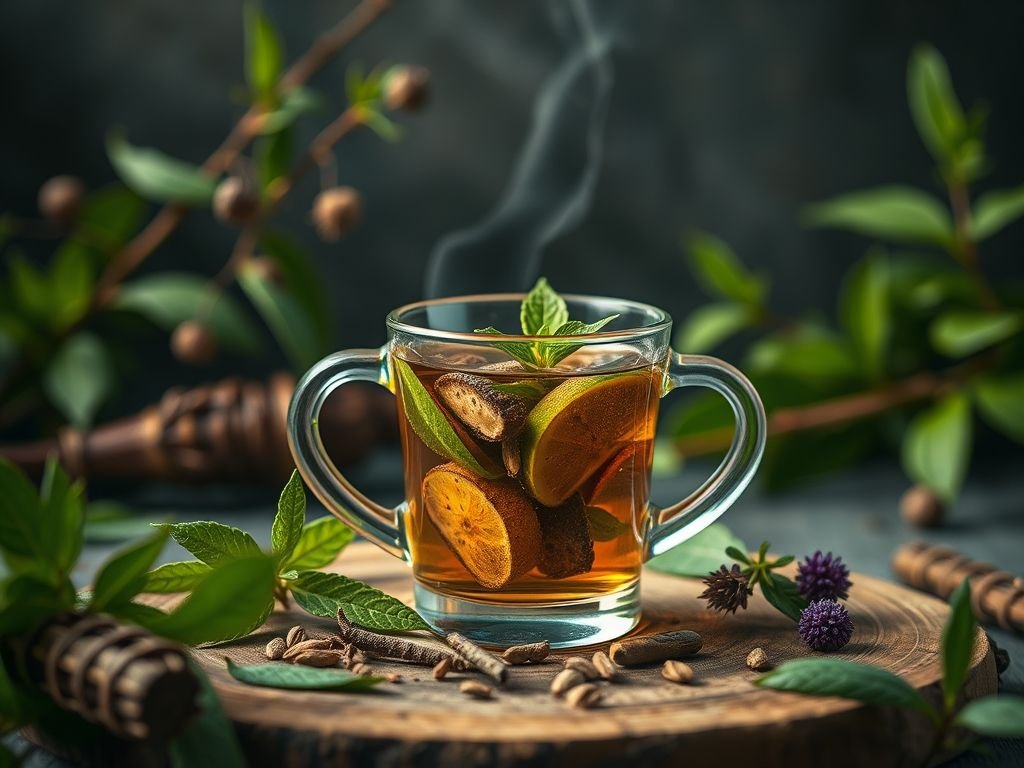What are Herbal Infusions?
Herbal infusions are beverages made by steeping plant materials, such as leaves, flowers, seeds, or roots, in hot water. This method extracts the flavors, colors, and beneficial compounds from the herbs, resulting in a drink that is both flavorful and often packed with health benefits. Unlike traditional teas, which are generally made from the Camellia sinensis plant, herbal infusions can be made from a wide variety of botanicals, offering diverse tastes and effects.
The Importance of Herbal Infusions in Natural Health
As more individuals gravitate towards natural health solutions, herbal infusions have gained popularity for their potential benefits in areas such as weight management, anxiety reduction, and overall wellness. These infusions not only provide hydration but also deliver essential nutrients and phytochemicals that can positively influence health.
1. Understanding the Benefits of Herbal Infusions
- Weight Management: Certain herbal infusions, like green tea and hibiscus, are known to boost metabolism and promote fat loss.
- Anxiety Relief: Chamomile and lavender infusions are renowned for their calming properties, helping to alleviate stress and anxiety.
- Digestive Support: Peppermint and ginger infusions can aid digestion and soothe an upset stomach.
2. How to Prepare Herbal Infusions
Making herbal infusions is simple and can be tailored to individual tastes. Here’s a basic method:
- Choose your herbs (e.g., chamomile, peppermint).
- Boil water in a kettle.
- Place 1-2 teaspoons of dried herbs or a handful of fresh herbs in a teapot or cup.
- Pour the boiling water over the herbs.
- Cover and steep for 5-15 minutes, depending on the desired strength.
- Strain and enjoy!
3. Different Types of Herbal Infusions and Their Uses
There’s a wide array of herbal infusions available, each with unique properties. Here are a few popular choices:
| Herb | Benefits | Flavor Profile |
|---|---|---|
| Chamomile | Promotes relaxation and sleep | Floral and sweet |
| Peppermint | Soothes digestive issues | Cool and minty |
| Hibiscus | Lowers blood pressure and supports heart health | Tart and fruity |
| Ginger | Anti-inflammatory and digestive aid | Spicy and warm |
4. Practical Applications of Herbal Infusions in Daily Life
Incorporating herbal infusions into your daily routine can be both enjoyable and beneficial. Here are some practical suggestions:
- Morning Boost: Start your day with a refreshing ginger infusion to kickstart your metabolism.
- Afternoon Pick-Me-Up: Sip on peppermint infusion to re-energize and support digestion after lunch.
- Evening Relaxation: Wind down with chamomile or lavender infusion to promote a restful night’s sleep.
Understanding herbal infusions can also lead to exploring related concepts in natural health:
- Herbal Teas: Similar to infusions but typically made from a specific plant.
- Tisanes: Another term for herbal infusions, emphasizing the non-tea ingredients.
- Essential Oils: Concentrated extracts that can complement herbal infusions for aromatherapy benefits.
Conclusion: Embracing Herbal Infusions for Wellness
Herbal infusions represent a powerful tool in the realm of natural health, offering a simple yet effective way to incorporate the benefits of herbs into our daily lives. By understanding the various types, benefits, and methods of preparation, individuals can harness the potential of these beverages to support weight loss, reduce anxiety, and promote overall well-being. As you explore the world of herbal infusions, remember to experiment with different herbs and find what resonates with your body and preferences.
Are you ready to integrate herbal infusions into your daily routine? Start by choosing a few herbs that interest you and enjoy the journey towards better health!

